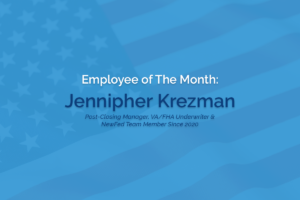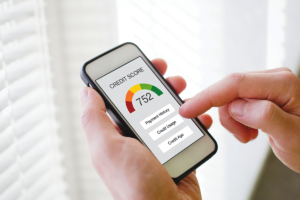In personal finance, the word “debt” often evokes feelings of stress and uncertainty. As a mortgage company dedicated to helping individuals achieve their homeownership dreams, we understand that debt is a nuanced aspect of financial planning. Let’s cover debt as our first key pillar of Financial Literacy Month. Although the topic of debt, its relationship with credit, and how it intersects with the journey to homeownership can be intimidating, we’re here to break it down with you and help turn those dreams into reality.
Understanding Debt and Credit
Debt is simply money borrowed that must be repaid, typically with interest. It can come in various forms, including credit card debt, student loans, car loans, and mortgages (just to name a few). Credit is used to measure one’s ability to borrow money, often represented by a credit score. Responsible debt management can bolster your creditworthiness, while excessive debt or missed payments can lower your credit score. When it comes to mortgages, lenders look at FICO scores to determine financing eligibility. Why FICO? We break that down in this blog.
One of the most common questions we hear from those afraid they won’t qualify for a mortgage is “How can I improve my credit score?” While there’s no straightforward answer for this, because everyone’s situation is different, there are certainly tips you can follow to make strides.
Debt and Homeownership
For many individuals, purchasing a home is the most significant financial commitment they will ever make. Understanding the relationship between debt and homeownership is crucial. Mortgage lenders evaluate the debt-to-income ratio (DTI), which compares your monthly debt payments to your gross monthly income, to determine your ability to repay a mortgage. Responsibly managing existing debt can improve your chances of securing a favorable mortgage rate and affording your desired home.
Not sure where your DTI lands? You can easily calculate it! Add up your total monthly debt payments (let’s say $900, for example), divide that number by your monthly gross income before taxes and deductions (let’s say $2,333, for example), and multiply it by 100. This example would give you a 39% DTI.
Analyzing and Managing Debt for Improved Approval Chances
Q: How much debt is too much when applying for a mortgage?
A: While there isn’t a one-size-fits-all answer, mortgage lenders typically prefer a debt-to-income ratio below 35%. However, this can vary depending on factors such as credit score and down payment amount. DTIs above 50% will likely require some work to lower them before applying – but some lenders can accommodate higher DTIs if other financial requirements are met and if that lender offers a supporting program (like our NewFed Advantage FHA DPA).
Q: Will paying off debt improve my chances of getting approved for a mortgage?
A: Reducing existing debt can often improve your debt-to-income ratio and overall financial health, increasing your chances of mortgage approval.
Q: What resources can help me manage my debt effectively?
A: Utilize budgeting tools like Mint or this nifty (and effective) budget planner from NerdWallet to track expenses and create a plan that works for you and your financial situation.
Additionally, many organizations at the federal, state, and local levels also exist to help people improve their financial literacy and provide assistance to those in need of debt relief or more detailed attention. Check out Debt.org for financial resources and guidance surrounding debt of all kinds.
And of course, our team of licensed mortgage professionals is more than happy to examine your current finances and assess what options and/or courses of action you can take to get pre-approved and start your home search. If you’re unsure where to begin, let us help!
At NewFed Mortgage, we recognize that debt is a natural part of financial life and believe that individuals can navigate it successfully with the proper knowledge and tools. By understanding the relationship between debt, credit, and homeownership, you can take proactive steps toward achieving your housing goals while maintaining financial stability. Together, we can help transform the challenges of debt into opportunities for financial empowerment and freedom, paving the way toward your real estate investment.
Stay tuned throughout April for more tips on how to boost your financial literacy. Up next, we’ll cover the topic of Budgeting.
Disclaimer: This article is for informational purposes only and should not be construed as financial advice. Please consult with a qualified financial professional regarding your specific situation.







